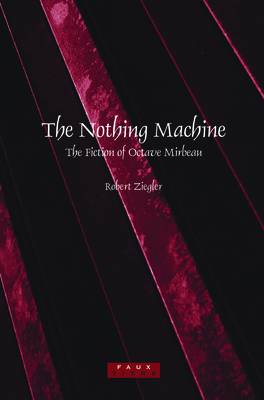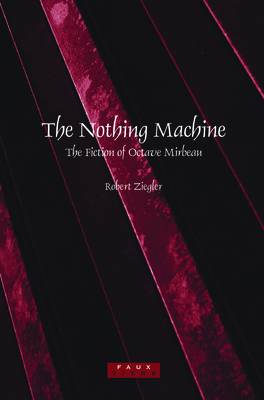
- Afhalen na 1 uur in een winkel met voorraad
- Gratis thuislevering in België vanaf € 30
- Ruim aanbod met 7 miljoen producten
- Afhalen na 1 uur in een winkel met voorraad
- Gratis thuislevering in België vanaf € 30
- Ruim aanbod met 7 miljoen producten
Zoeken
Omschrijving
In an era when reality was aestheticized as collectibles, Octave Mirbeau unleashed his fiction like a destructive machine, setting fire to stale material and discredited ideologies, burning them as fuel and expelling texts as clean emissions. In this first English-language overview of all the novels published under Mirbeau's name, this study argues that Mirbeau is unique among his fin-de-siècle peers. Unlike the Decadents, whose art was a reliquary in which dead inspiration was preserved, Mirbeau disengaged himself from the corpses of past works. Abhorring tradition and complacency, Mirbeau elaborated a kinetics of fiction that made the novel into an agent of violent transformation.
Contrasting the Decadents' aesthetic of elegant morbidity with Mirbeau's vitalistic view of fiction, this volume shows Mirbeau modeling himself on the figure of the torture artist, cutting up his finished works, building novels to disassemble them, fitting them together in revolutionary ways. Creativity for Mirbeau fertilizes un jardin des supplices, a cemetery smoldering with decomposing texts that are resolved into their constituent parts and then reemerge in different guises. In Mirbeau's writing, lives and art works are only transient aggregates of material, and creativity is immortalized through the perishing of old forms.
Contrasting the Decadents' aesthetic of elegant morbidity with Mirbeau's vitalistic view of fiction, this volume shows Mirbeau modeling himself on the figure of the torture artist, cutting up his finished works, building novels to disassemble them, fitting them together in revolutionary ways. Creativity for Mirbeau fertilizes un jardin des supplices, a cemetery smoldering with decomposing texts that are resolved into their constituent parts and then reemerge in different guises. In Mirbeau's writing, lives and art works are only transient aggregates of material, and creativity is immortalized through the perishing of old forms.
Specificaties
Betrokkenen
- Auteur(s):
- Uitgeverij:
Inhoud
- Aantal bladzijden:
- 252
- Taal:
- Engels
- Reeks:
- Reeksnummer:
- nr. 298
Eigenschappen
- Productcode (EAN):
- 9789042022379
- Verschijningsdatum:
- 1/01/2007
- Uitvoering:
- Paperback
- Formaat:
- Trade paperback (VS)
- Afmetingen:
- 155 mm x 234 mm
- Gewicht:
- 353 g

Alleen bij Standaard Boekhandel
+ 247 punten op je klantenkaart van Standaard Boekhandel
Beoordelingen
We publiceren alleen reviews die voldoen aan de voorwaarden voor reviews. Bekijk onze voorwaarden voor reviews.








